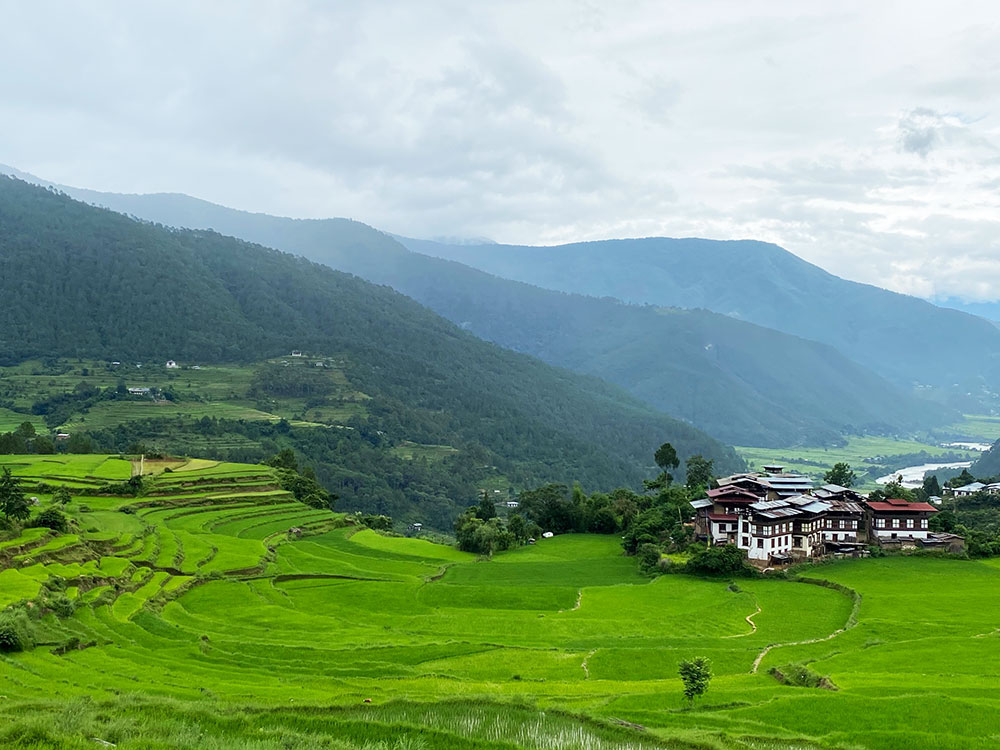Phurpa Lhamo | Punakha
Sixty-year-old Namgay Dem fetches water from a source that is about a kilometre away from her home. With age, it has become a daily arduous task. Despite many sources drying in the area, she has always wished for a source closer to home.
In Jangwakha-Sewala chiwog in Chubbu gewog, Punakha, water sources have been drying. Farmers are also witnessing a shift in the spring water outlet.
A resident, Daw Gyeltshen, 26, said that the spring water source near his home had also been shifting often. “If the water is there in the morning, then it’s gone by evening. The sources aren’t secure.”
Most farmers with smaller spring water near the house let the water store in the area by building ponds.
Others without spring water sources depend on irrigation water, which is open to animal defecation and other pollutants. “Old sources which benefited around 10 households are now dry. If there is water one year, the following year is a dry one,” Jangwakha-Sewala tshogpa Tsagay said.
With the recent initiation of the de-suung water project to bring water from a source located about 9km away, drinking water woes in Jangwakha-Sewala chiwog are expected to be resolved.
The project will benefit 132 households and institutions such as Nawakha Primary School, a lhakhang, and the residents of the Chubbu gewog centre.
The project with 90 de-suups and other technical teams began yesterday.
Chubbu Gup Sonam Tobgay said that the water management system had barely sustained the villagers in Jangwakha-Sewala and Bumtakha-Tempakha chiwogs.
He said that taps and reservoir tanks were also built to ensure that water wasn’t lost. “But no matter how much we manage, we don’t have enough drinking water. In summer, water sources are swollen but are also dirty and people have to drink it anyway. And in winter they dry.”
The new water source is clean and would be enough for all people in Jangwakha-Sewala, said Gup Sonam Tobgay.
Ensuring clean drinking water is also expected to help benefit farming as irrigation water can be directed to the fields. Jangwakha-Sewala chiwog has at least 60 acres of wetland.
As part of the de-suung water project, tap stands will also be built for the households.
The five-month project is expected to be completed by the end of this year.
Edited by Tshering Palden


